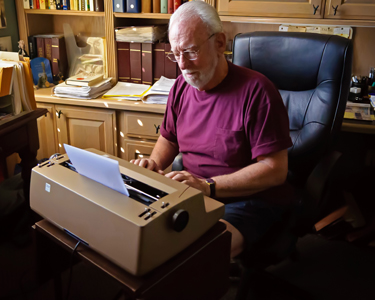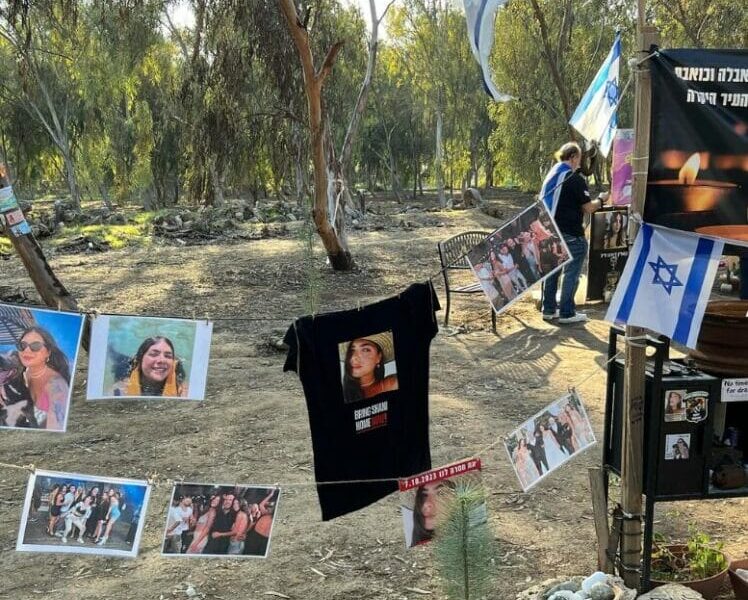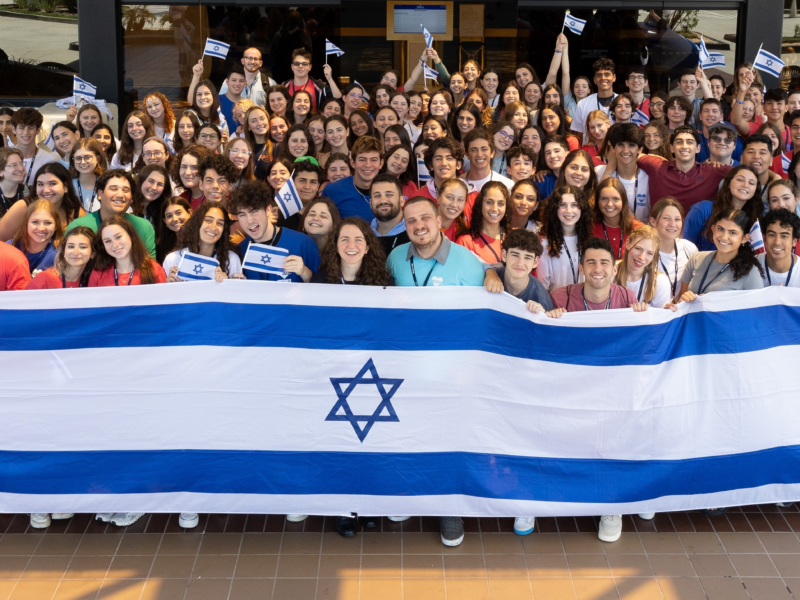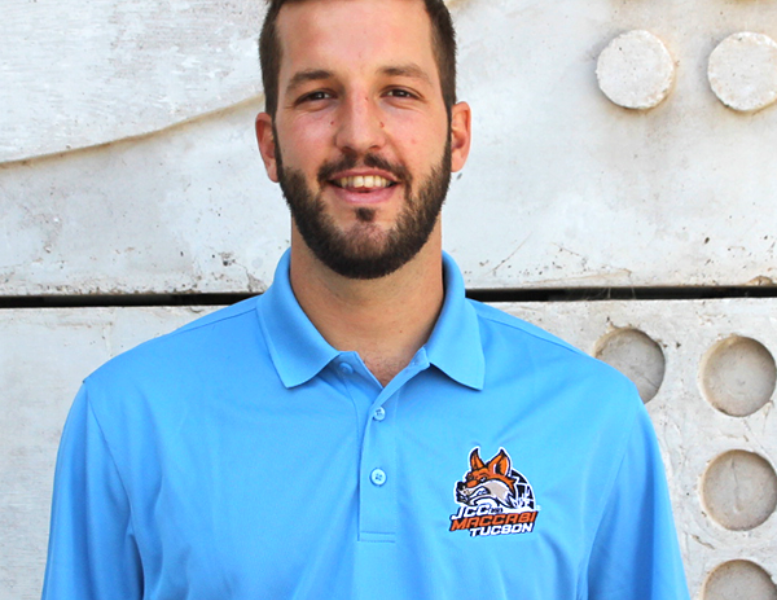Pictured above: Leon Gildin at work in his office.
Arizona author Leon Gildin will share his newest book, The Polski Trilogy, at the April 12 monthly book discussion group sponsored by the Arizona Jewish Historical Society.
“We do like to give local authors (when they are available) the opportunity to present on their work and field questions from the group. The program is free and all are welcome to attend,” says AZJHS Executive Director Lawrence Bell.
Leon has a lot to discuss about his trilogy that begins with his award-winning fictionalized account of the real Hotel Polski, where many survivors of the Warsaw ghetto were lured by the Nazis with promises of exit visas. While many were sent to their deaths, some did receive the foreign papers of deceased Jews and were able to emigrate.
In addition to the 2009 novel The Polski Affair, which won the International Book Award for Historical Fiction in 2010, the trilogy includes the sequel, The Family Affair, published in 2011, and the new conclusion of the family saga The Final Affair.
I read the first two novels for a profile of Leon and his work published in Arizona Jewish Life in February 2014.
Though the subject is obviously horrendous, I really enjoyed the first book’s tale of the Jewish partisan Rosa, who is sent to the hotel to spy for the partisans but gets caught in the hotel’s web. Rosa and her friend Itzhik, whose spouses and children were killed by the Nazis, get coveted exit visas with new identities (Anna and Chaim). When Rosa/Anna is called to testify at the hotel commandant’s war crimes trial, the experience haunts her. The characters in the book reacted to horrible situations in understandably complex ways.
I found the second book fascinating, but less satisfying. The reactions of the characters (now living in Israel) did not have the ring of truth I felt in the first book. Anna and Chaim’s family grows and thrives in Israel, yet her experiences during the war continue to haunt Anna and ultimately lead to the dissolution of the family.
When I told Leon of my reaction to the second book, he was surprised.
“I liked the second book more,” says Leon. “The amount of fortuitous and unexpected happenings in the second book were more interesting than the first. … The first and third book are, in their own way, self-contained stories. Each deal with two families and how they act and react to the incidents and times in which they live.
“However, the second book is a far wider experience, more characters, more interaction, more emotion, i.e., the death of Sholom’s wife and his remarriage; the discovery of Father Joseph and his conversion to Yossi; the Colonel no longer being a Nazi officer but becoming a father figure; the Colonel’s daughter, Liese, developing a relationship with Father Joseph and then Yossi and becoming ill when she came to Israel for an antagonistic purpose only to be nursed back to health by her enemy’s mother in a somewhat mother/daughter relationship. … Ups and downs, disjointed, fortuitous happenings, but isn’t that what life is all about?”
There was one point in the second book where Leon and I are in complete agreement – the ending left me feeling unsettled and unsatisfied. Leon agrees, saying he wrote the third book because, “I was unhappy with the way I ended the second book … I needed to resolve the unresolved issues.”
The third book reaches beyond the family and Israel to explore the effects of the Holocaust. Survivors and their descendants continue to struggle with the horrors and nightmares. But the novel also shares the impact on relatives living in safe nations during the war who search for decades to learn the fate of their relatives who had remained in Poland.
The trilogy was well worth reading, and I’m sure the discussion with Leon will be well worth attending.
April Book Discussion
WHO: Author Leon Gildin
WHAT: Discussion and book signing of The Polski Trilogy
WHEN: 7 pm, April 12
WHERE: Cutler-Plotkin Jewish Heritage Center, 122 E. Culver St., Phoenix
INFORMATION: azjhs.org, lbell@azjhs.org, 602-241-7870






